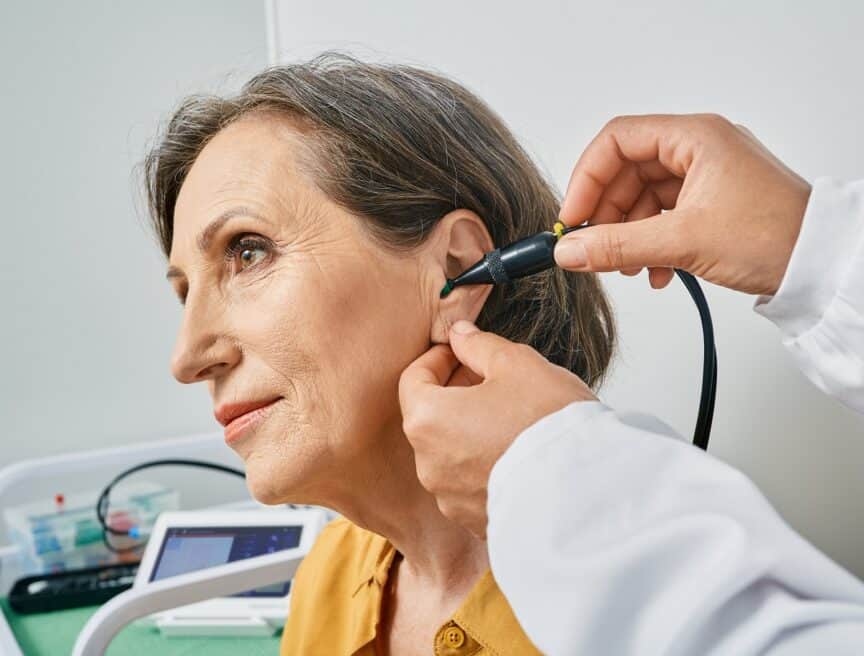Did you know there is a simple step you can take to honor American Diabetes Month? In addition to contributing your resources to diabetes-related causes and offering support to those in your life with elevated blood glucose, one easy way to contribute is to get a hearing test. This contribution is rooted in the connection between diabetes and hearing loss, one that is borne out in many population-based studies. In fact, those who have diabetes are twice as likely to have hearing loss than the population of those who do not have the condition. Even those who have pre-diabetes are at higher risk. These people who have elevated blood glucose levels but who do not have a full diagnosis of diabetes also have 30 percent higher rates of hearing loss than those who have normal blood glucose levels. With this connection in mind, each condition can be seen as a signal of the other. Though there is no certainty that you will develop one condition if you have the other, doctors think of them as warning signs for one another. If you get a hearing test that reveals you have hearing loss, then your primary care physician might be interested in testing your blood glucose levels. Let’s take a closer look at this relationship, as well as what you can do to prevent diabetes.
Diabetes Prevention
In honor of American Diabetes Month, this November is a great time to consider what you can do to prevent diabetes. Many healthy behaviors are linked to lower rates of diabetes. In the first place, there are unhealthy habits you can cease that will make diabetes less likely. Smoking and excessive alcohol consumption are correlated with higher rates of diabetes, so smoking cessation is a great first step, as is reducing your consumption of alcohol. Beyond ending unhealthy habits, there are also healthy habits you can cultivate to reduce your likelihood of developing diabetes. A diet that is plentiful in fresh fruit, vegetables, and whole grains has been linked to better blood glucose levels. On the contrary, eating a diet high in processed foods, sugary snacks, and soft drinks raises your risk of diabetes. Nutrition is a crucial way to not only prevent diabetes but also to manage glucose levels if you already have pre-diabetes or diabetes. Exercise is a great way to regulate blood sugar levels, as well. Although cardio exercise like jogging, biking, and swimming are powerful tools in your arsenal against diabetes, simple forms of physical activity can be better integrated into your lifestyle. Trying to take a walk each day, taking the stairs when possible, and other forms of simple activity can promote diabetes prevention without a trip to the gym.
Hearing Tests as Prevention
How can getting a hearing test serve as a form of diabetes prevention? We know that those who have prediabetes have 30 percent higher rates of hearing loss than those who have normal blood glucose levels. If you take a hearing test and get a diagnosis of hearing loss, you can pass this information along to your primary care physician. With this information in hand, your doctor will be alerted to the possibility of diabetes, and a test for blood sugar levels might be necessary. If you are found to have pre-diabetes, then there are steps you can take to prevent a full case of diabetes. In this way, a hearing test can serve as an indirect preventative measure for diabetes. When you get your test, you can be alerted to the possibility of a wide range of other conditions that might be related to hearing loss. Not only will you be able to find out if these other health conditions are possible, but you will also be able to pursue treatment for your hearing loss. Our hearing health professionals can use your diagnosis to pair you with the right hearing aids for your needs. If you can benefit from hearing aids, we will guide you through the process of selecting the right aids, fitting them, and learning how to best get used to your newfound hearing ability. Getting a hearing test can set off many benefits, so don’t delay!

